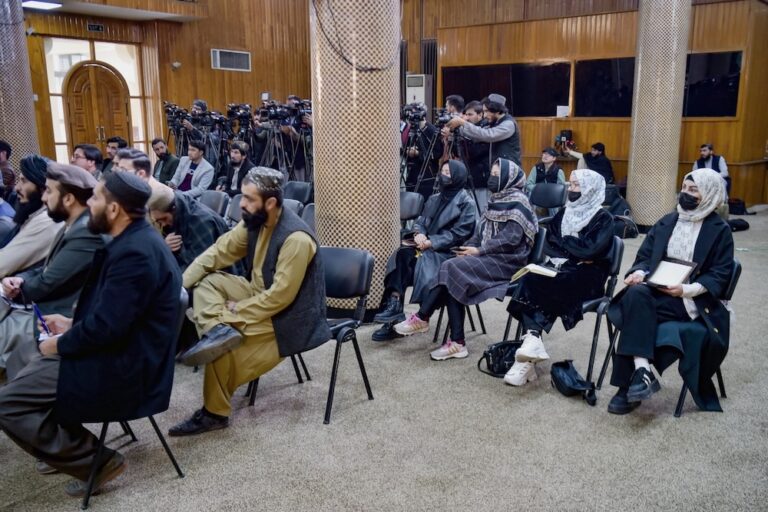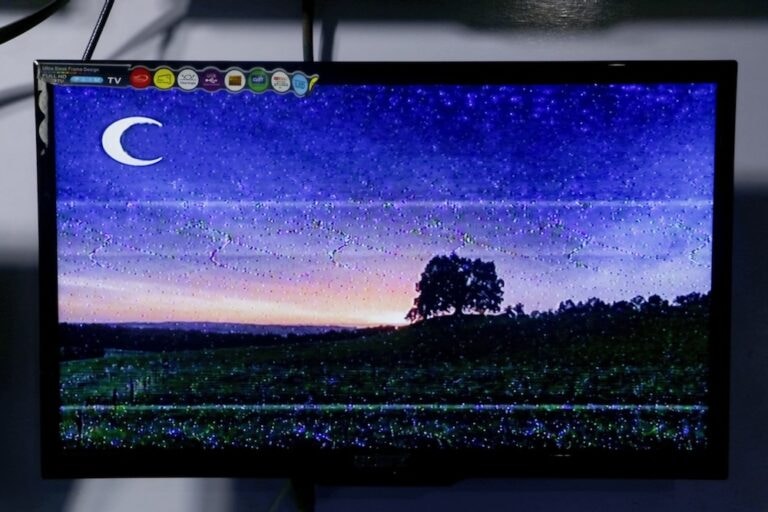(ARTICLE 19/IFEX) – The following is an ARTICLE 19 press release: Representatives of civil society met in Kabul under the auspices of ARTICLE 19 on 31 August to provide input to the International Conference on Promoting Independent and Pluralistic Media in Afghanistan. These were the recommendations adopted by the group: Civil Society Recommendations to the […]
(ARTICLE 19/IFEX) – The following is an ARTICLE 19 press release:
Representatives of civil society met in Kabul under the auspices of ARTICLE 19 on 31 August to provide input to the International Conference on Promoting Independent and Pluralistic Media in Afghanistan. These were the recommendations adopted by the group:
Civil Society Recommendations to the International Seminar on Promoting Independent and Pluralistic Media in Afghanistan
Representatives of Afghan civil society – including journalists, academics and non-governmental organisations – meeting in Kabul under the auspices of ARTICLE 19, Global Campaign for Free Expression, on 31 August 2002:
Recalling that freedom of expression is a fundamental human right as well as the cornerstone of democracy, and that it is crucial to participation in decision-making and the realisation of all other human rights;
Stressing the fundamental role of an independent and pluralistic media in acting as a watchdog of society and ensuring the free flow of information throughout the entire territory of Afghanistan;
Stressing the important role of all media, whether state-owned or independent, in promoting peace and national unity in Afghanistan, including by highlighting and promoting the role of civil society and its contribution to the reconstruction of the country;
Recalling the policy directions issued by the Ministry of Information and Culture on 6 June 2002;
Reaffirming the Civil Society Recommendations for Media Reform in Afghanistan drawn up in Kabul on 30-31 July 2002;
Desiring to make a positive contribution to the formulation of a new media policy for Afghanistan;
Make the following Recommendations to the International Seminar on Promoting Independent and Pluralistic Media in Afghanistan:
1. All journalists should be free to publish critical reports without fear of harassment, attack or retaliation.
2. All legal restrictions on the content of what may be published should be reviewed and repealed or amended as appropriate, retaining only those restrictions which pursue a legitimate aim, are necessary to achieve that aim, and clear and narrow in scope.
3. The media should be allowed space to develop self-regulatory mechanisms as well as an independent professional association to defend press freedom. The Press High Council established under the February 2002 Press Law should be abolished.
4. Financial assistance, including through subsidies as well as tax breaks, should be made available to promote the initial development of an independent pluralistic media. At the same time, media should strive to become financially independent, including by pooling resources in order to bring down production costs. Technical assistance should be made available also.
5. Radio Television Afghanistan should be transformed into a true public service broadcaster governed by a clear mandate and independent of outside influences, political or otherwise. Its programmes should serve the needs of the nation, including all ethnic groups and addressing gender issues, and its transmission system should be extended to cover the whole of the territory of Afghanistan.
6. The development of community radio systems should be encouraged.
7. Editorial independence of all media should be respected and political or commercial interference with the media should be prohibited.
8. Regular channels of communication should be set up to allow for a dialogue between the government and civil society, for example through the establishment of a permanent consultative committee.


